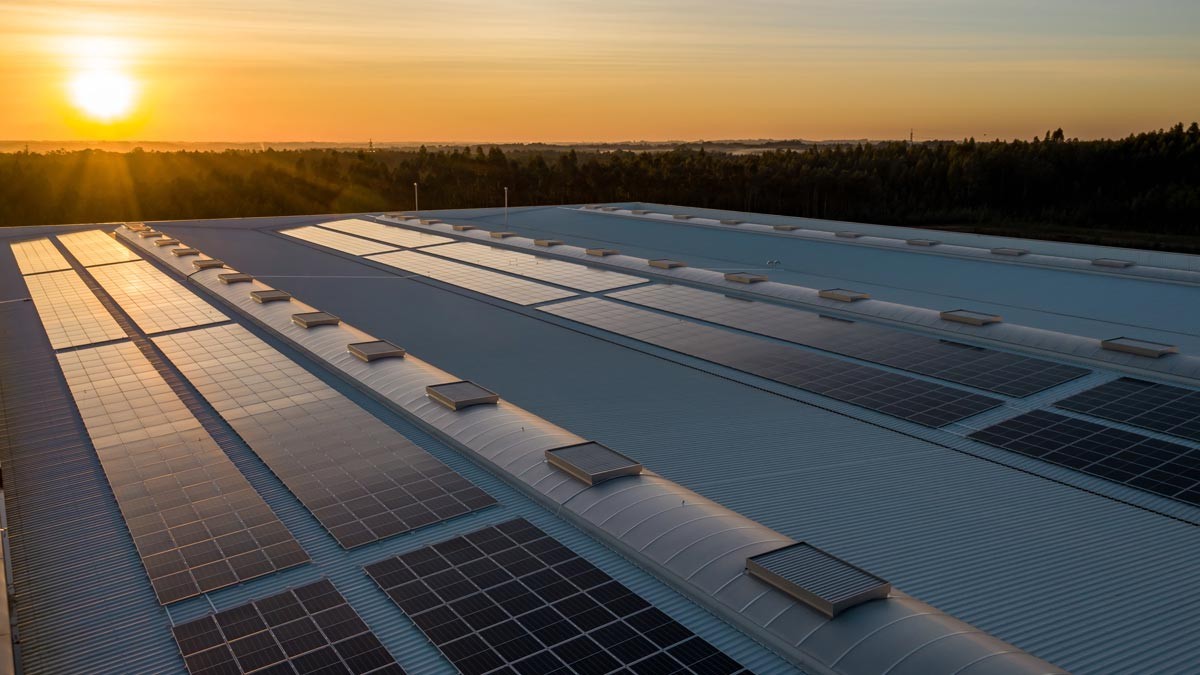Sun, wind and hydrogen: Furnishing industry with new energy
The following topics await you in this article
The energy transition as an opportunity
A smaller CO₂ footprint is not only good for the environment, it can also make companies more competitive. That’s because resource, energy and material efficiency help to cut costs long term. The furniture and supplier industry has therefore long been developing strategies for actively supporting the energy transition. For individual companies in the industry, that has often meant transforming their production and distribution processes. To achieve that, it was necessary to rethink business models and establish new topics. It also required targets, strategies and measures for facilitating the practical implementation in operations and for involving employees. Many regard this change management as an opportunity for positioning themselves on the market in a new way
Moving towards climate neutral furniture production
Numerous companies in the furniture and supplier industry have re-examined their production and sales processes in recent years. Many have switched operations to renewable energy, either in full or in part.
Around 70 companies from the industry have now become partners in a climate pact launched by the Deutsche Gütegemeinschaft Möbel (German Quality Furniture Association) in 2016. The initiative aims to cut the CO₂ emissions of participating companies as far as possible, and ideally eliminate them completely, through measures such as climate change consulting. Around 50 of those companies have already achieved the climate pact’s highest level and carry the RAL “Climate Neutral Furniture Manufacturer” quality mark.
Measures for better energy efficiency
Many companies have been able to significantly improve their environmental footprint through smart energy management. For example, numerous companies now get a large portion of their heating and cooling energy from renewable sources. Higher recycling ratios and the use of renewable and local raw materials also contribute to energy conservation.
Residual materials, such as when cutting chipboard panels, are used in biomass heating plants to produce new energy. Furthermore, devices used in production processes such as injection moulding machines are replaced by modern, energy-efficient systems. In logistics, the expansion of the e-charging infrastructure for heavy-goods vehicles offers opportunities to reduce CO₂ emissions through the use of renewable energy. This is not simply a matter of implementing individual measures. Energy efficiency is usually anchored in the company strategy and the results are regularly made available in sustainability reports.

Companies have been able to significantly improve their environmental footprint through smart energy management. (Source: Nuno Marques at Unsplash)
Sharing good solutions
New energy sources such as biogas and green hydrogen, for which there is a growing market, should also help pave the way to climate neutrality. At present, it would not be possible to produce furniture and furnishing components entirely without emissions, but the switch to green energy would significantly reduce them.
To exploit their full potential for climate protection, the steps taken should be measurable and made available to other companies as best-practice models. The climate initiative “gemeinsam klimaneutral 2030” (climate neutral together 2030) was established to encourage communication about good solutions for more energy-efficient business. The Chamber of Industry and Commerce for the furniture region of East Westphalia has made an accounting tool available for this purpose. Participating companies can use the tool to calculate the annual carbon footprint of their location as a way to track the success of their environmental measures.
Statutory precedence of renewable energy
Countries such as the USA, the UK and Germany have set targets to achieve climate-neutral electricity supply by 2035. The speed at which sustainable energy production is being expanded is significantly higher as a result.
In Germany, the overriding public interest of renewable energy has already been cemented in law. Renewable energy will therefore have precedence in planning and approval processes in future. Even though energy markets are expected to ease in 2023, the topic will remain a crucial one for businesses – because energy-conscious operations and the implementation of relevant measures pay off over the long term.

